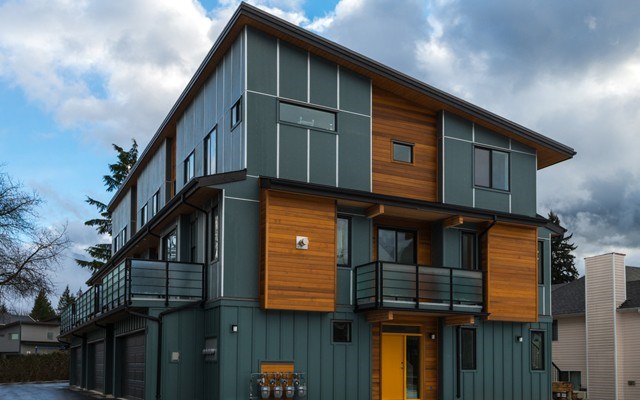While some of Whistler's top developers welcomed the province's announcement last week that it would be modernizing B.C.'s Building Act to provide a more consistent approach, they agreed the move won't have a major impact on the resort's construction sector.
Following years of demands for Victoria to update B.C.'s building regulatory system, officials began to look at modernizing the code in 2004, a project that was shelved in the late 2000s when the economic recession hit. Last week, the announcement came that the province will introduce the new Building Act, providing a standardized approach that aims to streamline the development process, reduce costs and remove barriers created by differing building requirements between jurisdictions.
"I think it's a step in the right direction, I just hope that it goes far enough," said Peak Ventures Fine Homes owner David Girard. "I think what they're trying to do is a good thing because there's definitely what I would describe as inconsistencies (in the code's interpretation), especially in outlying areas."
In the past, developers were largely at the mercy of an individual building inspector, and while resort-based builders agreed that the interpretation in the code has historically been consistent, that isn't always the case in other municipalities.
"(A builder) could be experiencing different code requirements and different interpretations of the building code literally from one side of the street to the other (in some jurisdictions), which makes the job incredibly challenging," explained RDC Fine Homes' Bob Deeks. "The intent of this is to create a uniform interpretation, so everybody does things the same way, and not only are they doing them the same way, but they're doing them in the manner that was intended when the code's language was originally created."
In Whistler, the same two building inspectors have been in place for years, Deeks said, and that longevity and their willingness to openly discuss any problems that may arise, means that the resort's construction sector likely won't experience any significant changes under the modernized Building Act.
"We have highly experienced individuals who have taken great care to properly understand the code and they are very open to engaging if you think there's a misinterpretation," said Deeks. "We certainly have not experienced anywhere near the type of conflict here you see not only in other parts of B.C. but across North America."
Tom McColm, owner of TM Builders, concurred.
"I can't see (the new act) being that huge of an impact," he said. "I think it's probably more for city-oriented, larger populations where they probably have more problems with very competitive, cheaper contractors."
Under the new act, the province is now the sole authority to create building requirements and establishes mandatory qualifications for local building officials. It also expands Victoria's ability to review innovative building proposals such as the Wood Innovations Design Centre in Prince George.
Should the new act be passed, local governments and building officials will have a two- to four-year transition period to adapt to the new provisions.
For more information, visit www.leg.bc.ca/40th4th/1st_read/index.htm.




